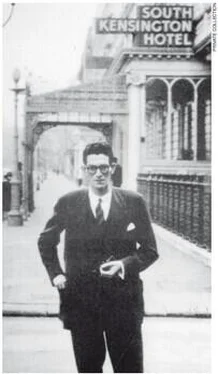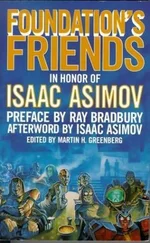Ben Macintyre - A Spy Among Friends
Здесь есть возможность читать онлайн «Ben Macintyre - A Spy Among Friends» весь текст электронной книги совершенно бесплатно (целиком полную версию без сокращений). В некоторых случаях можно слушать аудио, скачать через торрент в формате fb2 и присутствует краткое содержание. Год выпуска: 2014, ISBN: 2014, Издательство: Bloomsbury Publishing, Жанр: Старинная литература, на английском языке. Описание произведения, (предисловие) а так же отзывы посетителей доступны на портале библиотеки ЛибКат.
- Название:A Spy Among Friends
- Автор:
- Издательство:Bloomsbury Publishing
- Жанр:
- Год:2014
- ISBN:9781408851746
- Рейтинг книги:5 / 5. Голосов: 1
-
Избранное:Добавить в избранное
- Отзывы:
-
Ваша оценка:
- 100
- 1
- 2
- 3
- 4
- 5
A Spy Among Friends: краткое содержание, описание и аннотация
Предлагаем к чтению аннотацию, описание, краткое содержание или предисловие (зависит от того, что написал сам автор книги «A Spy Among Friends»). Если вы не нашли необходимую информацию о книге — напишите в комментариях, мы постараемся отыскать её.
A Spy Among Friends — читать онлайн бесплатно полную книгу (весь текст) целиком
Ниже представлен текст книги, разбитый по страницам. Система сохранения места последней прочитанной страницы, позволяет с удобством читать онлайн бесплатно книгу «A Spy Among Friends», без необходимости каждый раз заново искать на чём Вы остановились. Поставьте закладку, и сможете в любой момент перейти на страницу, на которой закончили чтение.
Интервал:
Закладка:
Philby shrugged. ‘How would I know?’
Milmo moved on to Krivitsky’s report of the mysterious Soviet spy sent under journalistic cover to Civil War Spain with a mission to assassinate Franco.
‘Who was that young journalist?’ Milmo demanded. ‘Was it you?’
Philby replied that if the Soviets had really wanted to kill Franco, they would surely have used a professional hitman, not a Cambridge graduate who had never fired a gun. Frustrated, Milmo now overplayed his hand, accusing Philby of handing sensitive papers to Burgess, a charge Philby could refute without even lying.
Milmo next accused Philby of marrying a communist, and smuggling her into Britain. Philby countered that if he had left his Jewish girlfriend in Vienna she would have wound up in a Nazi concentration camp. ‘How could I not help her?’
The lawyer was running out of ammunition. At each evasion, Milmo’s voice grew louder, his face redder, his manner more bellicose. He banged the table. He snorted in disbelief. He flapped and thrashed.
A stenographer took down every word. In the next room, a posse of senior intelligence officers, including Dick White, Guy Liddell and Stewart Menzies, listened glumly as Milmo grew more enraged, and more ineffectual. ‘So far, he has admitted nothing,’ Liddell recorded in his diary. ‘Milmo is bearing down on him pretty heavily.’
‘It all became a shouting match,’ said White.
After four hours Milmo was hoarse, Philby was exhausted, and the interrogation had ended in stalemate. Milmo knew Philby was guilty. Philby knew he knew, but he also knew that without a confession, the accusations were legally toothless. ‘The interrogation of Philby has been completed without admission,’ wrote Liddell that evening, ‘although Milmo is firmly of the opinion that he is or has been a Russian agent, and that he was responsible for the leakage about Maclean and Burgess.’ Before leaving MI5 headquarters, Philby was asked to surrender his passport, which he happily did, reflecting that if he needed to flee he would be travelling on false papers provided by his Soviet friends.
‘I find myself unable to avoid the conclusion that Philby is and has been for many years a Soviet agent,’ Milmo wrote. To White he was even blunter. ‘There’s no hope of a confession, but he’s as guilty as hell.’ Reviewing the tapes and the transcript of the Milmo interview, Guy Liddell conceded that Philby, his esteemed former colleague and friend, had failed to behave like a man unjustly accused. ‘Philby’s attitude throughout was quite extraordinary. He never made any violent protestation of innocence, nor did he make any attempt to prove his case.’ But without new, firm evidence, Liddell wrote, Philby ‘had all the cards in his hands’. And if Philby was guilty, what of the other friends they shared? What of his good friend Anthony Blunt, who had known both Burgess and Philby? What of Tomás Harris, another former MI5 man, whose home had been the scene of so many well-oiled get-togethers? Fissures of doubt began to creep through the intelligence establishment, as its senior figures eyed one another, and wondered.
Philby described his four-hour grilling to Elliott, angrily insisting that he had been lured into a legal trap. Outraged on his friend’s behalf, Elliott complained to Malcolm Cumming, a senior MI5 officer and one of the few Etonians in the Security Service.
Nicholas Elliott again referred to PEACH’s intense anger with MI5 over the Milmo interrogation. He said that PEACH did not in any way object to such an independent interrogation being carried out but he did resent the fact that after his friendly conversations with Dick White, he should be virtually enticed to London under false pretences and then thrown straight into what proved to be a formal inquiry at which even his request to smoke was refused.
As Philby’s advocate, Elliott was determined to extract an apology for the way the interrogation had been handled. MI6 was ‘counter-attacking’, Liddell recorded gloomily, and Elliott was leading the charge.
MI5 was still determined to extract an admission of guilt from Philby, and now turned to a man who was, in almost every conceivable way, the polar opposite of Buster Milmo. William ‘Jim’ Skardon, a former detective inspector in the Metropolitan Police, was Watcher-in-Chief, head of the surveillance section A4, and by repute the ‘foremost exponent in the country’ in the art of interrogation. Skardon was mild and unassuming in manner; he wore a trilby, a raincoat, an apologetic expression and a damp moustache. He spoke in a sibilant, self-effacing whisper, and seldom made eye contact. Where Milmo relied on intimidation and noise, Skardon wormed his way into a man’s mind by guile and insinuation. He had successfully extracted a confession in January 1950 from Klaus Fuchs, the atomic spy, winning his confidence during long walks in the country and quiet chats in rural pubs. Skardon uncovered truth by increments, asking what seemed to be the same questions, subtly varied, again and again, until his target tripped and became enmeshed in his own lies. Philby knew a great deal about Skardon, and his reputation. So when this stooped, unctuous, bland-seeming man knocked on his door in Heronsgate and asked if he might come in for a cup of tea, Philby knew he was still in the deepest water.
As both men sucked on their pipes, Skardon seemed to wander, rather vaguely, from one subject to another, with a ‘manner verging on the exquisite’. Afterwards, Philby thought he had spotted, and side-stepped, ‘two little traps’, but wondered anxiously if there had been others he had failed to detect. ‘Nothing could have been more flattering than the cosy warmth of his interest in my views and actions.’ Skardon reported back to Guy Liddell that his mind ‘remained open’ on the issue of Philby’s guilt. This was the first of several visits Skardon would pay to Kim Philby over the coming months, as he probed and prodded, humble, polite, ingenious and relentless. Then, in January 1952, as abruptly as they had started, Skardon’s interviews ceased, leaving Philby ‘hanging’, wondering just how much the detective had detected. ‘I would have given a great deal to have glimpsed his summing up,’ he wrote. In fact, Skardon’s final report proved that the Philby charm had outlasted Skardon’s bogus bonhomie. The interrogator admitted that the hours with Philby had left him with ‘a much more favourable impression than I would have expected’. The charges against Philby were ‘unproven’, Skardon concluded. His passport was returned.
‘Investigation will continue and one day final proof of guilt . . . may be obtained,’ MI5 reported. ‘For all practical purposes it should be assumed that Philby was a Soviet spy throughout his service with SIS.’ MI6 sharply disagreed: ‘We feel that the case against Philby is not proven, and moreover is capable of a less sinister interpretation than is implied by the bare evidence.’ And that is how the strange case of Kim Philby remained, for months, and then years, a bubbling unsolved mystery, still entirely unknown to the public, but the source of poisonous discord between the intelligence services. Philby was left in limbo, suspended between the suspicions of his detractors and the loyalty of his friends. Most of the senior officers in MI5 were now convinced that he was guilty, but could not prove it; most of his former colleagues in MI6 remained equally certain of his innocence, but were again unable to find the evidence to exonerate him. There were some in MI5, like Guy Liddell, who clung to the hope that it might all turn out to be a ghastly mistake, and that Philby would eventually be cleared of suspicion; just as there were some in MI6 who harboured doubts about their former colleague, albeit silently, for the sake of the service.
Читать дальшеИнтервал:
Закладка:
Похожие книги на «A Spy Among Friends»
Представляем Вашему вниманию похожие книги на «A Spy Among Friends» списком для выбора. Мы отобрали схожую по названию и смыслу литературу в надежде предоставить читателям больше вариантов отыскать новые, интересные, ещё непрочитанные произведения.
Обсуждение, отзывы о книге «A Spy Among Friends» и просто собственные мнения читателей. Оставьте ваши комментарии, напишите, что Вы думаете о произведении, его смысле или главных героях. Укажите что конкретно понравилось, а что нет, и почему Вы так считаете.












